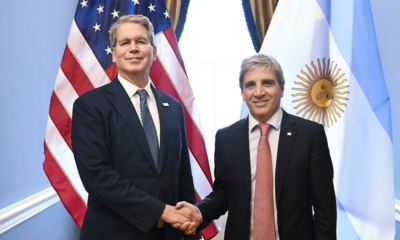INTERNACIONAL
For Putin, ‘US is the main enemy,’ Estonian foreign minister says

TALLINN, ESTONIA – Estonia’s top diplomat thinks Russia’s war on Ukraine goes well beyond the front lines.
«This is not about Europe. I think that for Putin and for Russia, the U.S. is the main enemy, like historically,» Foreign Minister Margus Tsahkna told Fox News in an exclusive interview in Estonia’s capital, Tallinn.
«He has a plan to restore the Soviet empire, and this is exactly what he’s doing. Ukraine is just one example,» he added.
Nine years ago, Tsahkna, then serving as Estonia’s defense minister, watched as 120,000 Russian soldiers massed just across the border, ready to invade his country in just 48 hours.
WARNING TO TRUMP NUCLEAR NEGOTIATORS ABOUT DECEPTIVE IRAN VERSION OF ‘ART OF THE DEAL’
Russian soldiers ride a truck during a rehearsal for the Victory Day military parade in St. Petersburg, Wednesday, April 30, 2025. (AP Photo/Dmitri Lovetsky)
«Now these troops are gone. They were sent to Ukraine, and they are literally dead,» Tsahkna spoke from the foreign ministry Wednesday, where he now serves as Estonia’s top diplomat.
«At the moment, I don’t expect any kind of the full-scale military aggression against NATO because Russia is running out of power in Ukraine, to be honest,» Tsahkna added. «Economically, they’re very weak, but of course, we see that Russia is preparing again.»
Estonia is not taking any chances.
To ward off any potential invasion on NATO’s eastern flank, Estonia recently announced it would spend over 5% of its GDP on defense next year, a goal President Donald Trump has requested from all NATO countries.
EUROPE STEPS UP TO FUND ITS OWN DEFENSE, PROVIDE SECURITY FOR UKRAINE AFTER TRUMP THREATS
On Wednesday, Estonia officially welcomed the arrival of six HIMARS satellite-guided rocket systems made in the United States. It’s a weapon that has been used in Ukraine effectively, destroying targets up to 186 miles away.
«We have created, as Estonians, the rule that if the U.S. is investing $1, we are adding $10 on top of that. And all this going back to [sic] goes back to the U.S. economy, and we are getting the capabilities,» Tsahkna said.
In recent weeks, Estonia, Latvia, Lithuania, Finland and Poland announced they would withdraw from the Ottawa Convention, which bans the use of anti-personnel land mines. Russia, which is not party to the treaty, has deployed mines in the roughly 20% of Ukraine it now occupies.
Estonia is a small country of 1.3 million people located in Eastern Europe, with an area about twice the size of New Jersey, It shares a 214-mile border with Russia.
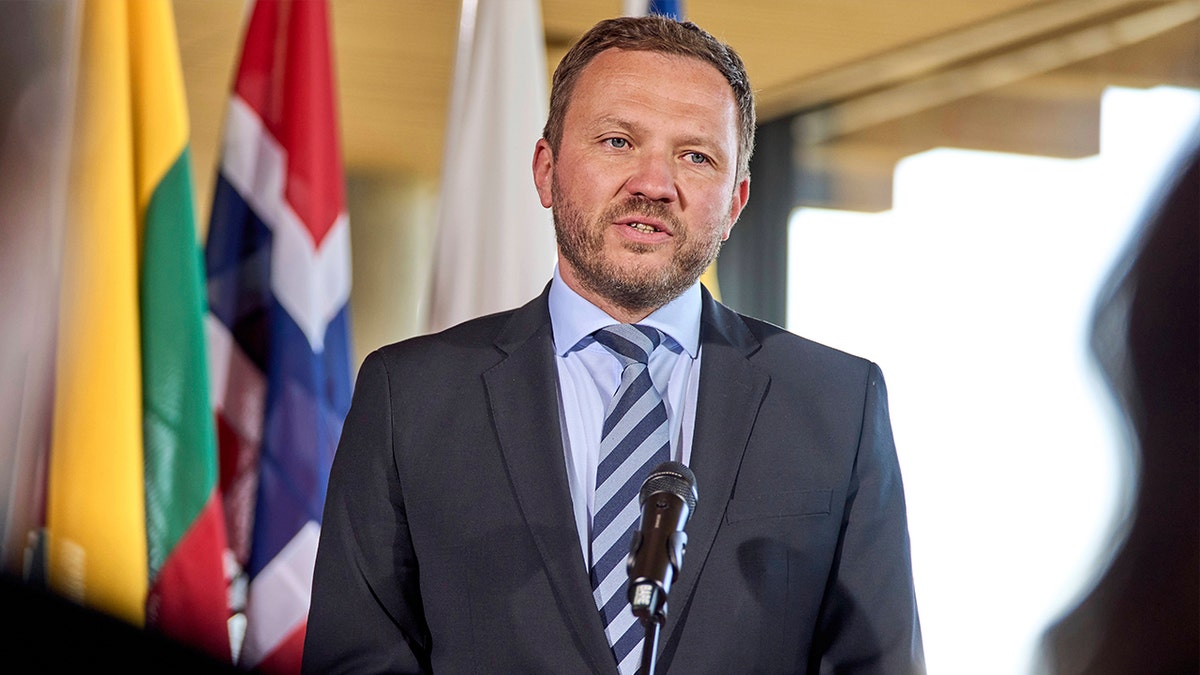
Estonia’s Foreign Minister Margus Tsahkna attends a press conference after a meeting of ministers from the member countries of the Nordic-Baltic Eight on the island of Bornholm, Denmark, April 29, 2025. (Thomas Traasdahl/Ritzau Scanpix)
Since Russia launched its full-scale invasion of Ukraine more than three years ago, Estonia has cut off all energy imports from Russia. Today, it receives 80% of its natural gas from the United States.
Not all countries have been as defiant. The 27-nation European Union, of which Estonia is a member, has only cut 60% of its energy imports from Russia. Last year, the European Union spent more on Russian oil and gas than aid to Ukraine, according to the Kiel Institute.
The Kremlin is also waging war on another front as well. «Russia is using religion of the church as a tool for their own political goals,» Tsahkna said.
The foreign minister also weighed in on Russia’s proposed three-day ceasefire surrounding its May 9 celebrations marking the end of World War II. «This is not that serious,» Tsahkna replied.
RUSSIA DECLARES 3-DAY CEASEFIRE IN UKRAINE FOR WWII VICTORY DAY
Since late 2023, nearly a dozen undersea cables in the Baltic Sea and the Gulf of Finland have been cut. Russia is suspected but «it’s very hard to say exactly,» Tsahkna said. Over 14 people from Russia’s so-called shadow fleet have been arrested. China is suspected of carrying out at least one act of sabotage as well.
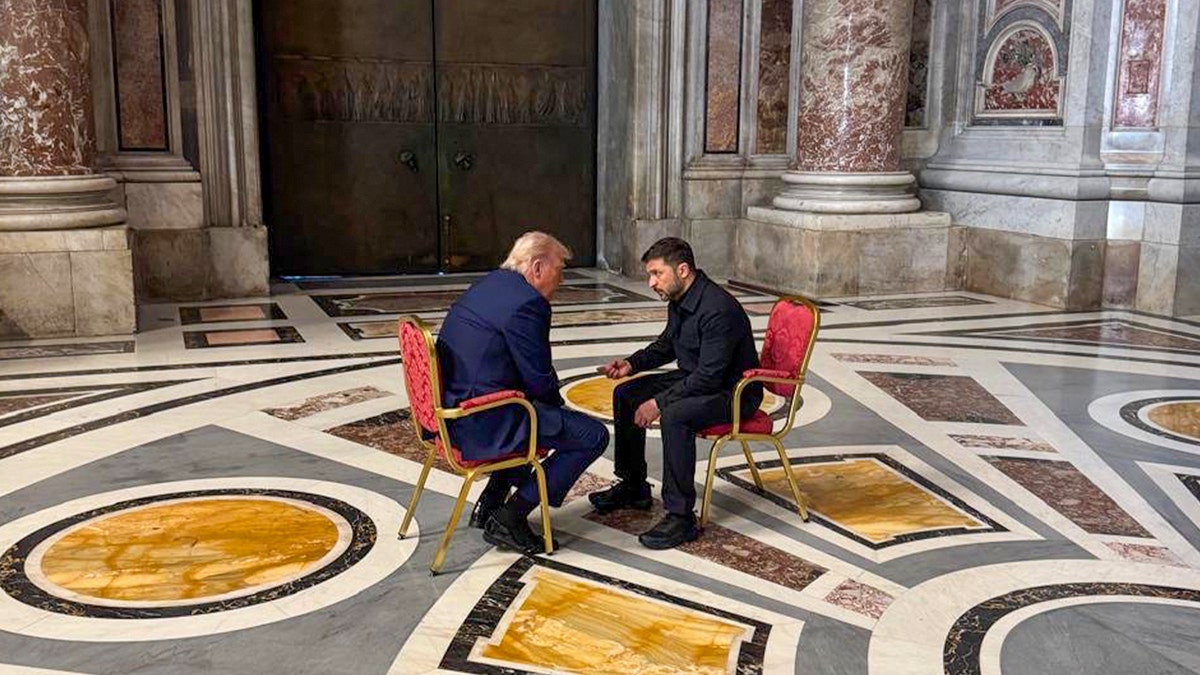
President Donald Trump meets with Ukrainian President Volodymyr Zelenskyy for the first time since their Oval Office spat in February. (Vatican and Ukraine Ambassador to Holy See)
NATO deployed warships off the coast of Estonia in January, and since then no cables have been cut, officers told Fox while on two ships in the Gulf of Finland Tuesday.
When asked about the prospects of a ceasefire and eventual end of hostilities in Ukraine, Tsahkna replied with a warning:
«President Trump has said very clearly that he wants to have peace. The Ukraine [sic] people want to have a [sic] peace – and I think that this is something that Putin doesn’t want.»
Tsahkna does not believe Putin would ever use nuclear weapons, calling such a move «political suicide.»
CLICK HERE TO GET THE FOX NEWS APP
«He’s just brutal, but also sometimes, from the Western part of the world, we are too weak,» Tsahkna added. «Putin is playing with our fears.»
INTERNACIONAL
Una «bomba meteorológica» amenaza a Francia y deja a París en estado de emergencia
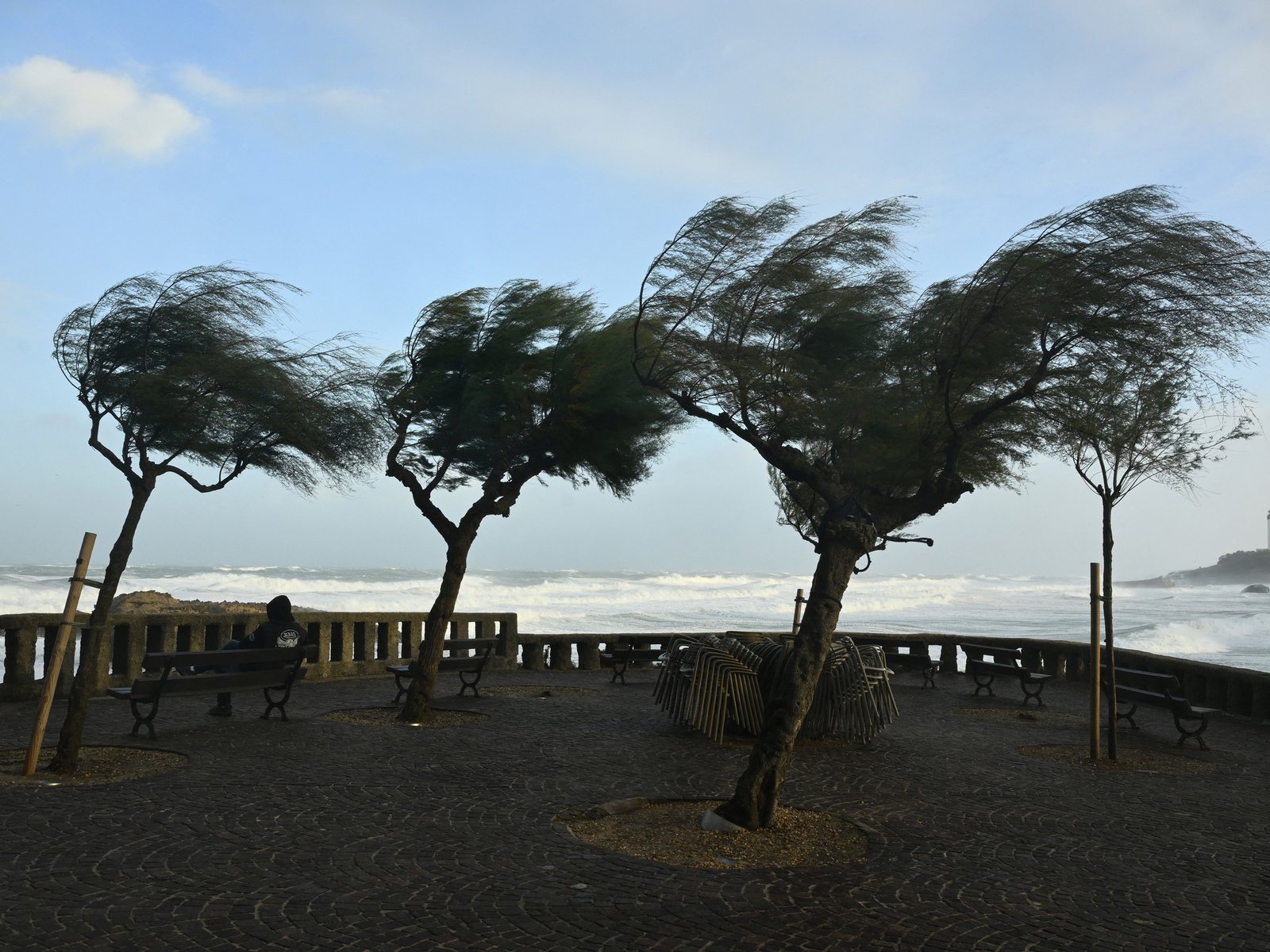
Inundaciones y vientos huracanados
Transportes y rutas afectados
«¿Bomba meteorológica?»
INTERNACIONAL
Fox News Politics Newsletter: Adams to back Cuomo in NYC mayoral race

NEWYou can now listen to Fox News articles!
Welcome to the Fox News Politics newsletter, with the latest updates on the Trump administration, Capitol Hill and more Fox News politics content. Here’s what’s happening…
–Red state university student caught on video threatening lives of Charlie Kirk supporters: ‘Watch your neck’
-Curtis Sliwa vows to be Zohran Mamdani’s ‘worst nightmare’ if the Democratic socialist wins NYC mayoral race
-Undercover video exposes what Spanberger’s campaign organizer really thinks of her: ‘What the f—‘
NYC Mayor Adams to endorse Cuomo in race against Mamdani
New York City Mayor Eric Adams will endorse former New York Gov. Andrew Cuomo in the city’s mayoral race as he faces off against Democratic nominee Zohran Mamdani.
«As spokesman for Mayor Eric Adams, I can confirm that the Mayor will endorse former Governor Andrew M. Cuomo for mayor and intends to campaign alongside him,» Adams’ spokesman, Todd Shapiro, said in a statement to Fox News. «The time and locations for their joint appearances are currently being finalized.»
Adams declined to answer questions about Cuomo at an unrelated press conference Thursday morning…READ MORE.
New York Mayor Eric Adams poses with Independent candidate former New York Gov. Andrew Cuomo after Cuomo participated in the second debate for the upcoming mayoral election on Wednesday evening. (Al Bello/Getty Images)
White House
HOMEGROWN POWER: Apple building American-made AI servers ahead of schedule in new Houston facility, answering Trump call
NEW DETAILS: SCOOP: Trump’s Memphis crime crackdown locates dozens of missing kids, removes 109 gangbangers from streets

National Guard members began patrolling Memphis, Tennessee, in October as part of a federal task force established by President Donald Trump to combat what the administration says is violent crime in the city. (Brett Carlsen/Getty Images)
NO PEACE TALKS: Trump ‘not interested’ in de-escalation with ‘unhinged’ leader of Colombia, White House says
ON PAUSE: Trump freezes out Putin for lack of ‘enough action’ toward peace — future talks uncertain
BLUNT DIPLOMACY: Inside Trump’s ultimatum that forced Netanyahu to the table: ‘You can’t fight the world’
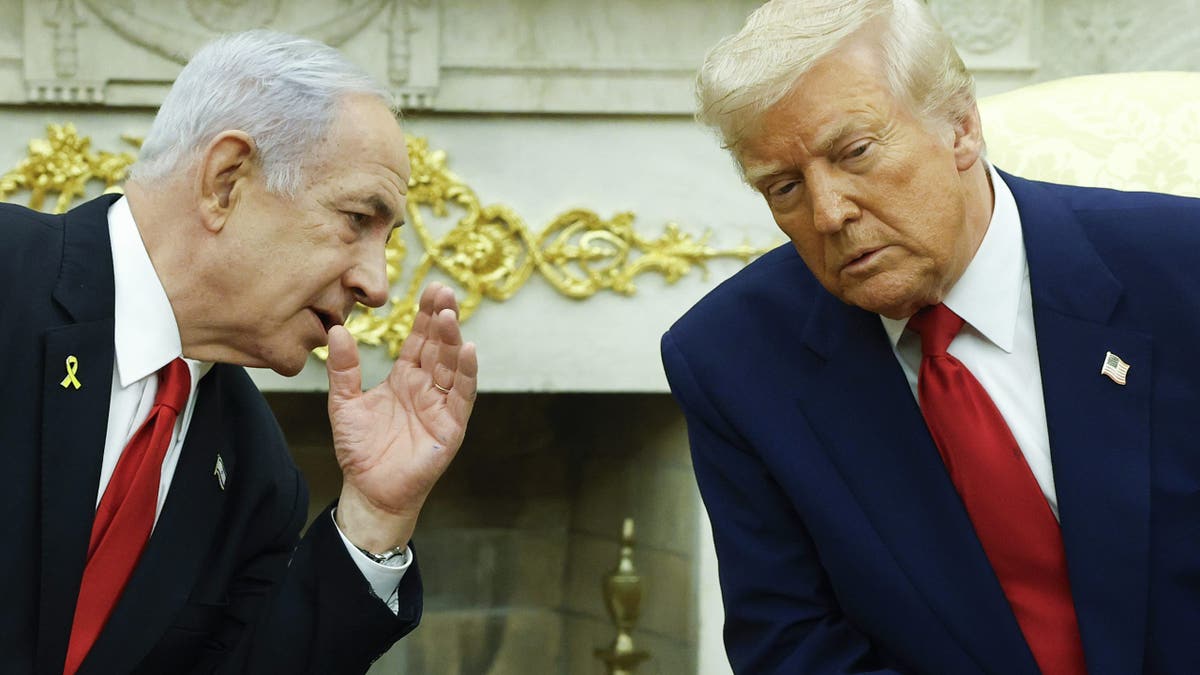
Israeli Prime Minister Benjamin, left, talks to President Donald Trump during a meeting in the Oval Office of the White House April 7, 2025, in Washington. (Kevin Dietsch/Getty Images)
World Stage
SKY VIOLATIONS: Russia violates NATO airspace in Lithuania amid Putin warning on long-range missiles
‘AMAZING BLESSING’: Vance visits church where Christians believe Jesus was crucified, resurrected amid Israel-Hamas ceasefire
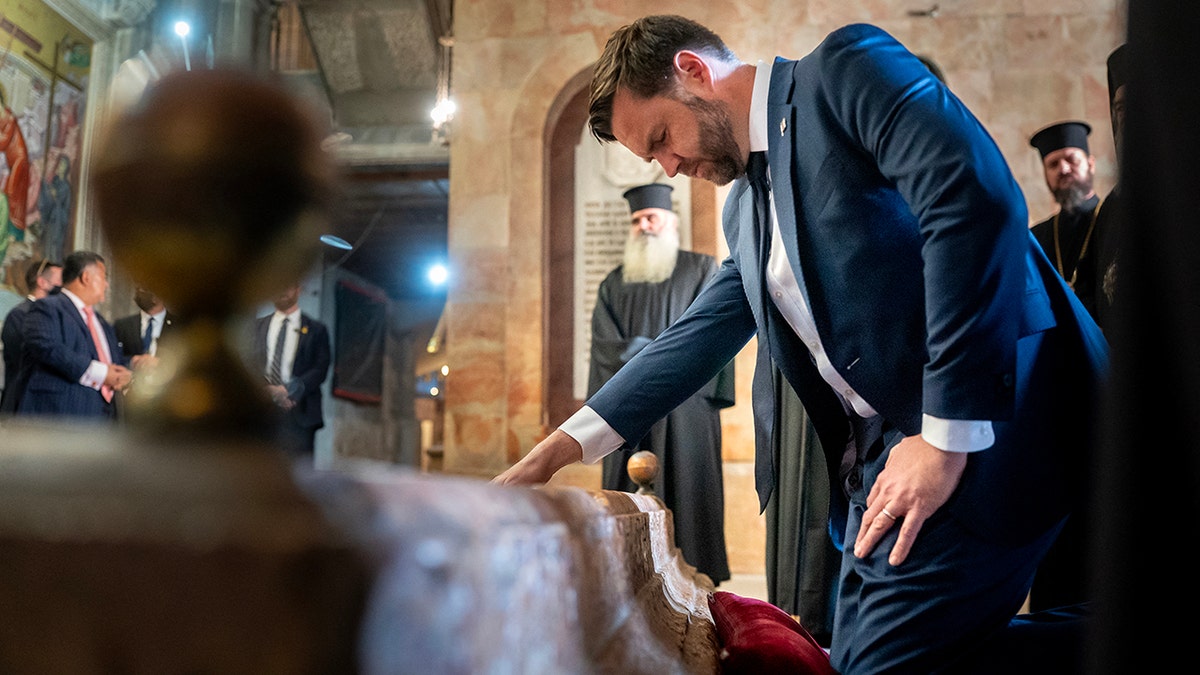
Vice President JD Vance tours The Church of the Holy Sepulchre in the Old City of Jerusalem Oct. 23, 2025. (Nathan Howard/Pool/AFP via Getty Images)
NO MORE GAMES: After waffling between Russia and Ukraine, Trump slaps Kremlin with oil sanctions
Capitol Hill
SNAP OUT OF IT: Democrats under fire as food stamp funds run dry: 42 million Americans caught in shutdown fight
NO PAY FOR YOU: Essential workers left unpaid after Senate Democrats kill pay bill
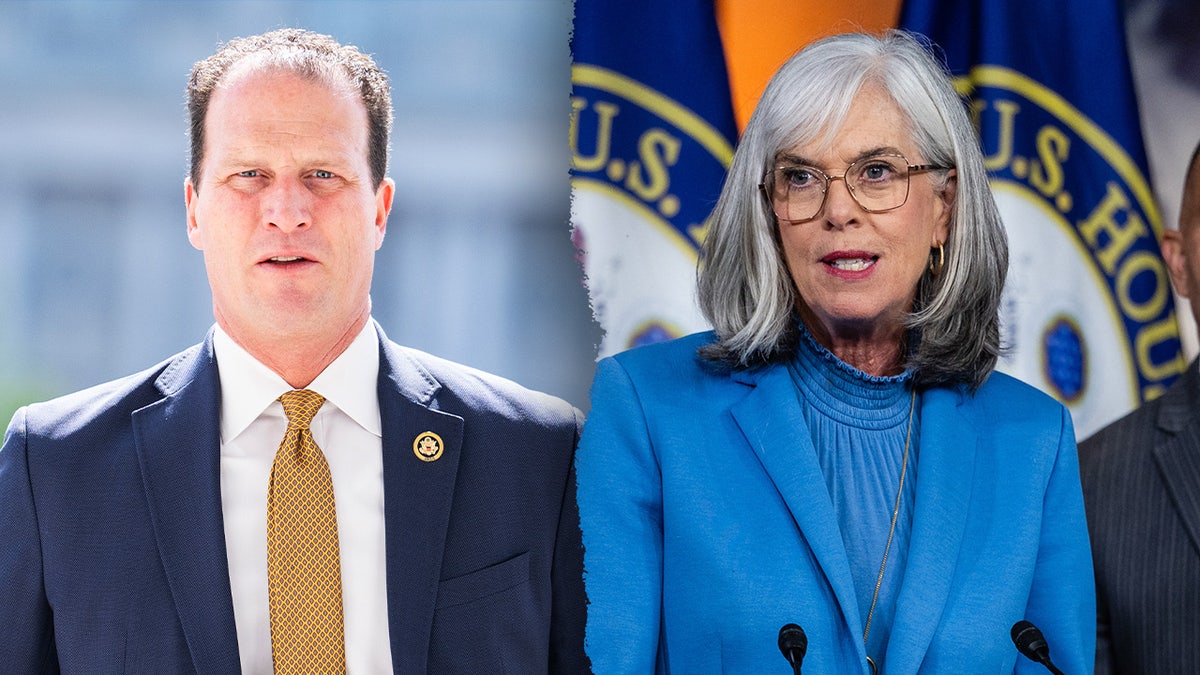
Republican Study Committee Chairman August Pfluger is criticizing House Minority Whip Katherine Clark’s comments in a recent interview on the government shutdown. (Tom Williams/CQ-Roll Call, Inc via Getty Images; Eric Lee/Bloomberg via Getty Images)
HOSTAGE POLITICS: Top Republican slams Katherine Clark for admitting suffering families are «leverage» in shutdown battle
SOCIAL-IST STANDING: Bernie Sanders defends Maine Senate candidate under fire for wild Reddit comments

Senator Bernie Sanders, an Independent from Vermont and ranking member of the Senate Health, Education, Labor, and Pensions Committee, arrives for a confirmation hearing in Washington, July 16, 2025. (Valerie Plesch/Bloomberg via Getty Images)
Across America
HALF IN, HALF OUT: Trump yet to endorse in VA governor’s race — but also kept Youngkin at arm’s length
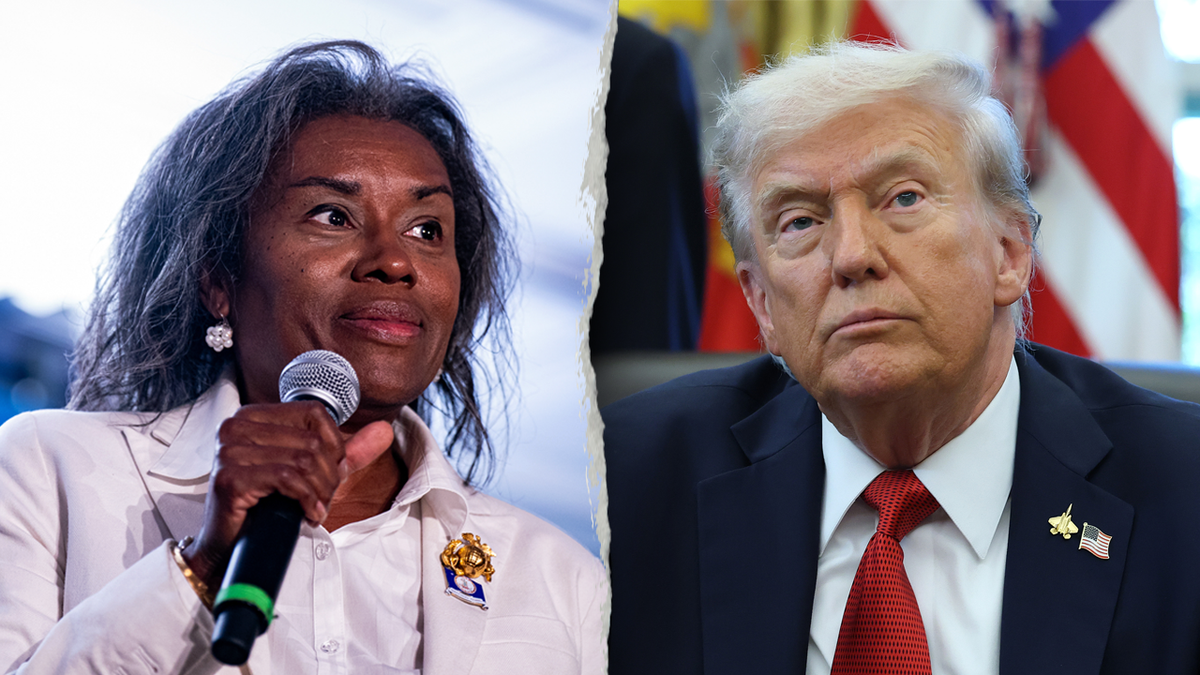
Virginia Lt. Gov. Winsome Sears, left; President Trump, right. (Al Drago/Getty Images; Anna Moneymaker/Getty Images)
MIXED BAG: New poll in key showdown for Virginia governor indicates single-digit race
FOOD FIGHT: Youngkin declares state of emergency over «Democrat Shutdown» depleting food stamp benefits for nearly 1M Virginians
AI ATTACK: Andrew Cuomo campaign walks back controversial attack ad targeting Mamdani voters
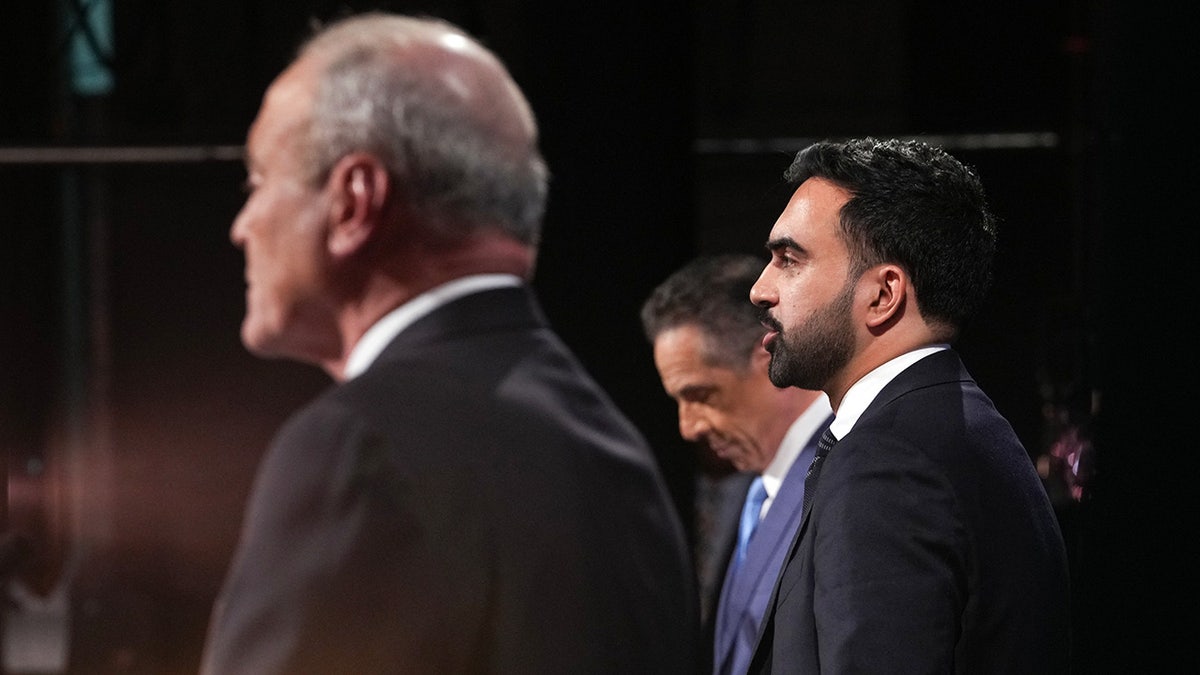
Democratic candidate Zohran Mamdani, right, Republican candidate Curtis Sliwa, left, and Independent candidate and former New York Governor Andrew Cuomo. (Hiroko Masiuke/POOL/AFP via Getty Images)
CAMPAIGN CLASH: Social media erupts after Cuomo, Mamdani rip each other during final debate: ‘Unmasked’
‘CALL TO ACTION’: NYC rabbis sound off on «unprecedented risk» Mamdani poses as hundreds of leaders sign «call to action»
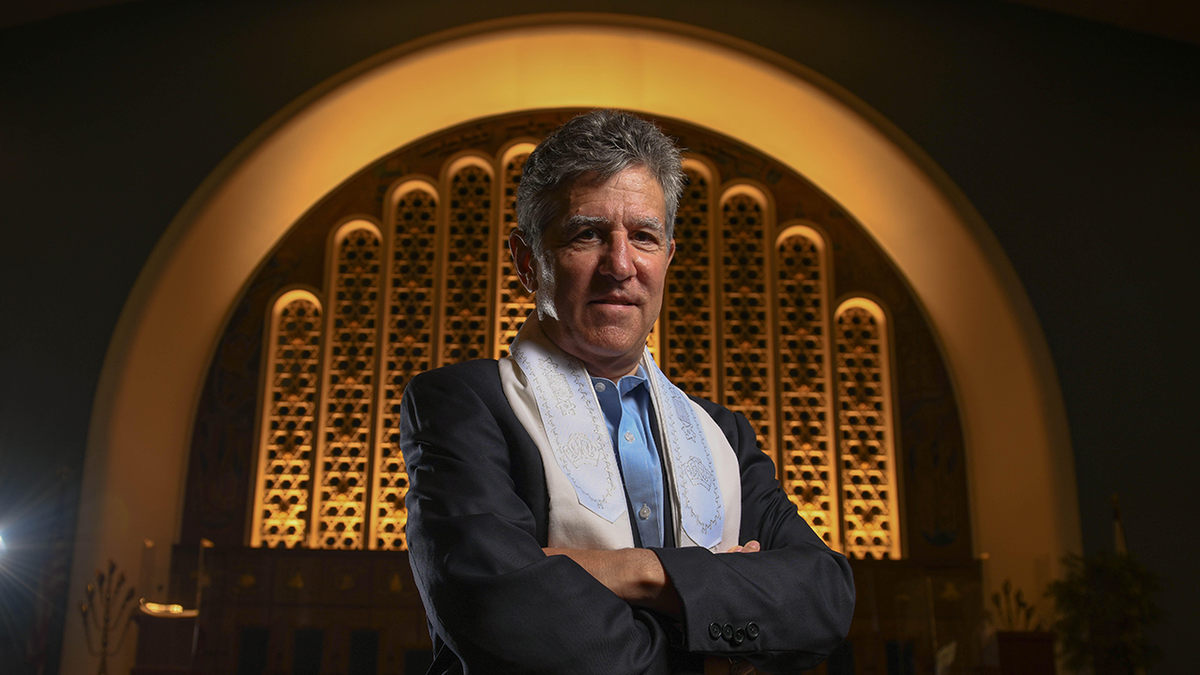
Rabbi Ammiel Hirsch accused New York City mayoral candidate Zohran Mamdani of «fanning the flames of intolerance» with two weeks until Election Day. (Shahar Azran)
SECOND GUESSING: NYC socialist mayoral candidate Mamdani’s 911 plan called «worst idea» by former NYPD sergeant
Get the latest updates on the Trump administration and Congress, exclusive interviews and more on FoxNews.com.
elections newsletter
INTERNACIONAL
Lecturas para el fin de semana: cómo radicalizar el dolor

Habitar el dolor ajeno. ¿Es posible? Tomarlo con las manos, acobijarlo en el pecho, compungirse hasta el llanto, concentrarse en su textura, no dejarlo ir. La empatía trafica esa idea, pero, como escribió Alexandra Kohan, “no podemos entrar los dos en los zapatos de uno”. El otro es el otro y, en tanto otredad, es inquietante, imposible. En ese sentido, la literatura abre una posibilidad en el espacio, la de sumergirse en una narración ficcional que, al ser un artificio, radicaliza al extremo la emoción.
En algún punto, la lectura es un vacío. Un lugar sin notificaciones ni publicidad ni imágenes identificables. Esa zona donde el lenguaje imagina la pureza. Y si entendemos que la ficción no es un sinónimo de la mentira, sino una forma de contar la verdad, el lector se permite algo imposible: habitar el dolor ajeno. Porque el dolor está en el pecho de los personajes, en la atmósfera de las escenas, en la prosa, en la trama, pero no en él, que está del otro lado, ¿a salvo? Quizás ocurra exactamente lo contrario.
“Fijate, ¿lo llegás a ver? Casi no se ve, pero ¿no te parece asombroso ese alerce solo ahí, altísimo, resaltado en la llanura? Hasta tiene el tupé de competirle el protagonismo al horizonte». Un padre con una enfermedad avanzada y su hija viajan en auto hasta Buenos Aires: se tiene que hacer un estudio. Pero se detienen en un pueblo, en una casa, alguien familiar. Él fuma, ella lo reta. “¿Cómo no fotografiarlo?“, dice mirando el árbol, él que es fotógrafo. “¿Sin luz?”, pregunta ella. “Mañana, si se despeja (…) Es la última”.

La luz queda se llama la novela que acaba de publicar Diotima. Su autor es Alejandro Pereyra, escritor, guionista, director de cine. Es brevísima y la narración se agolpa en las páginas, no con apuro, sino con intensidad. “Voy a dejar la fotografía, Romina, antes de que ella me deje a mí“. Cuando ella le pide ”no te pongas trágico», que “va a salir todo bien”, él le dice: “No entendés, Romina. No es por mi cuerpo, por esa mierda que tengo. Solo que esta foto es el punto final perfecto. La vengo pensando hace tiempo”.
Después la literatura hace su trabajo: aparecen otras voces, el paisaje se vuelve una inundación, los pensamientos flotan y las intenciones vuelan. De pronto, “todo es de verdad, hasta la dulzura de mierda”. Y Arturo, el padre, el fotógrafo, sueña con otra foto, pero no es tan fácil. “Los días son todos diferentes” pero “la noche es siempre la misma”. Y la historia va cerrándose, la enfermedad no cesa, y “ya casi no se aguanta el dolor. Pero estate tranquilo, que siempre se trató de amor. Aunque no lo entiendan”.
Cuando Marie-Pier Lafontaine entendió que solo había dos opciones, escribir o prender fuego la casa familiar, escupió Perra. Son ochenta y pico de páginas intensas que narran una dura historia de abuso. Cuando estuvo fuera de esa cárcel de anhelos reventados, el testimonio se hizo literatura. Pero lo novedoso de este libro de 2020 y traducido el año pasado por Agustina Blanco para Ediciones Godot no es este acontecimiento —¿cuántos víctimas han podido narrar sus tragedias en libros?—, sino la mirada.
“Entre todas las leyes del padre, había una de índole fundamental: no contar”, comienza Perra. “De niña, disimulaba mis deseos en textos de ficción. Dos hermanas en fuga. Perseguidas por un monstruo de dos cabezas. Huían por sombríos bosques. Se armaban con ramas, palos. Hoy ya no escondo mis deseos. Quisiera que este texto diezmara a mi familia toda”, escribe esta canadiense nacida en 1988 en Montreal, dentro de “la parte francesa”, autora también de Armas para la rabia.

Por momentos, la hoja se pone de un negro completo con frases así: “Al padre le encanta hacernos saber que piensa en nosotras cuando eyacula. Se las arregla siempre para que lo oigamos”. O también: “Los alaridos se detienen. El padre sale del cuarto de mi hermana. Carraspea. Sus pasos resuenan hasta la otra punta del pasillo. Va al encuentro de la madre”. O: “Mi hermana y yo solo con tomarnos de la mano sabemos con certeza que sobreviviremos al padre”. O: “¿Nuestros vecinos nunca oyeron nada?”
Los recuerdos no se eligen, aparecen como un relámpago en la noche, pero elegimos qué contar. Desde las primeras páginas de Corazón de león de Monika Helfer, que acaba de ser traducido por Gabriela Adamo para Edhasa, sabemos que el hermano de la narradora está muerto. Lo que sigue es una novela en retrospectiva: un personaje que ya no existe, pero que aparece, intrépido y subversivo, en las escenas ahora narradas. Las historias son delirantes y divertidas, pero tienen la inocultable pátina de la tristeza.
Entre esos recuerdos aparece el día en que su hermano conoció a su actual marido, entonces su amante. Su marido estaba de viaje, sus hijos con los abuelos; la casa y el fin de semana para el romance. Y su hermano, tocó el timbre. “Los presenté, conversamos y tomamos vino y fumamos un poco de la hierba que él cultivaba; cuando se despidió, le dijo que le caía bien y que el hecho de que tuviera una relación conmigo, su hermana, solo podía entusiasmarlo, porque todo lo que me hiciera bien lo entusiasmaba”.

“¡Johnny, acabo de romper bolsa!“ En un pueblo del interior profundo de los Estados Unidos, año 1970 y pico, una mujer está a punto de dar a luz. Vive en el campo, en una cabaña junto a su esposo entre el frío y la soledad. Tienen treinta años y han esperado con mucha ansiedad este momento. Suben a la camioneta en las primeras horas de la mañana y conducen unos cuantos kilómetros hasta el hospital con la esperanza de conocer a su hijo, el primogénito. Sin embargo el bebé nace muerto.
A grandes rasgos, esa es la historia narrada en El nadador en el mar secreto, novela breve, profunda, sensible, que publicó William Kotzwinkle en 1975. Es autobiográfica, porque eso le ocurrió: perdió a su primer hijo ni bien salió de la panza de su esposa. Mientras el dolor se agitaba con violencia dentro de su pecho, se encerró en su estudio y se puso a escribir “con las lágrimas en los ojos desde la primera a la última página”. Una revista norteamericana la publicó en el viejo formato de novela por entregas.

La novela ganó varios premios; luego, el olvido. En 2019 la reeditó el sello argentino China Editora. El nadador en el mar secreto no ahonda en sentimientos, ni siquiera se demora en describirlos. La pareja protagonista atraviesa dos momentos de extremos: el parto y la muerte. En su brevedad, la narración adquiere potencia y genera efectos. ¿Qué efectos? Diría que esta novela convierte al lector, incluso al más insensible, en una criatura más vulnerable. Podría decirse que lo devuelve a la realidad.
En nombre de ser comprensivos, no dejamos de arrasar con el otro poniéndole nuestras suposiciones, nuestras atribuciones, nuestras fantasías. Creemos que el otro necesita lo que nosotros creemos que necesita, lo que nosotros necesitaríamos en su lugar. Y, muchas veces, sin ni siquiera haber escuchado del otro ningún pedido. No es poco frecuente que se diga “te entiendo, a mí me pasa lo mismo” y que se corra entonces la conversación hacia lo que me pasa entonces a mí. ¿Por qué hay que pasar por uno para entender al otro? Porque eso es justamente la comprensión. El asunto es, si resulta soportable acompañar a otro resistiéndose a entenderlo, aún en su incomprensibilidad, aún en su ilegibilidad.
“La empatía supone que entre el yo y el otro no hay nada: no hay fantasías, suposiciones, fantasmas, lenguaje: nada, nada de nada”, escribió Alexandra Kohan. “El otro nos es transparente y absolutamente escrutable del mismo modo en que el sí mismo se advierte transparente y escrutable”.

 DEPORTE2 días ago
DEPORTE2 días agoUniversidad de Chile vs. Lanús, por la Copa Sudamericana: día, horario y cómo verlo por TV

 CHIMENTOS2 días ago
CHIMENTOS2 días agoAdabel Guerrero confesó de qué famosa está enamorada y que le encantaría tener relaciones: «La China Suárez me sorprendió con su belleza»

 ECONOMIA3 días ago
ECONOMIA3 días agoScott Bessent oficializó el swap con la Argentina y afirmó: “No queremos otro Estado fallido en América Latina”















